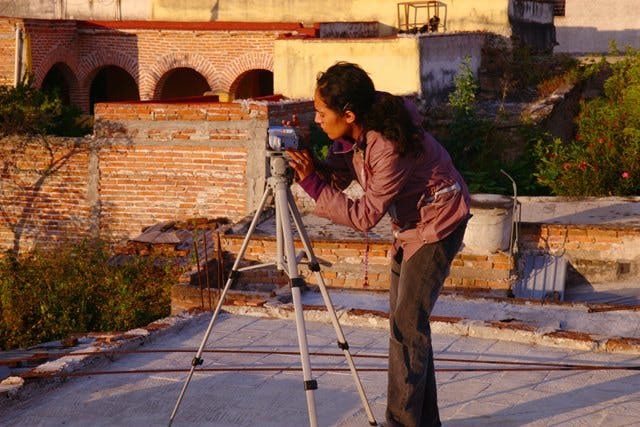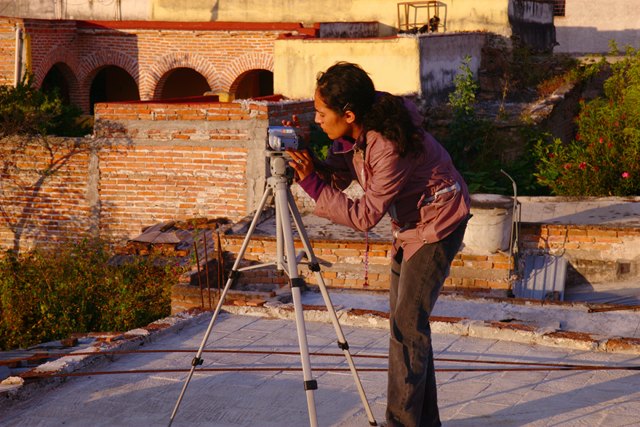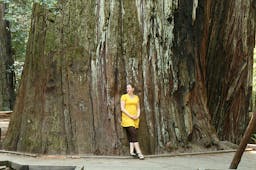Technology, Innovation and Social Change
Jan 21, 2015
Story


Ashoka Tech hosted a contest to win a trip to Hyderabad to blog about their Technology 4 Society conference. I ended up running out of time applying, but I still wanted to share my thoughts. Even though I won't be attending the conference, Ashoka Tech is a phenomenal organization and I look forward to following the conference.
Recently I participated in a moving popular education conference in Guadalajara, Mexico, where we were divided into our generations and collectively defined and expressed the trends of each generation. In my generation, those born in the 1980s and late 1970s, we came up with two succinct differences that distinguish us from older generations. They are:
1) We face problems that are much more complex and pressing – such as climate change, water scarcity, and loss of biodiversity on an unprecedented scale.
2) We possess technological tools to connect the local to the global and create movements and communications that were previously impossible.
The internet has and is drastically changing the ways we connect and information is shared. Innovation and collaboration no longer have the similar boundaries they once possessed. Technology enables solution sharing and movement building in unprecedented forms. For example while the Chinese government has in the past hidden earthquakes for months, after the recent earthquakes in May, Chinese tweeters announced the earthquake before the government knew they had occurred. Similarly, in the Ghanian elections in December 2008, citizens successfully used mobile phones and twittering to monitor election fraud.
Despite incredible advancement, barriers of access and language still prevail on much of the internet. Many tools available in much of the world, are not known or used. The difference between technologies available and how they are adopted in different cultures is fascinating and apparent –I think about this divide often since leaving San Francisco, CA, one of the epicenters of the technology innovation, three months ago. Coordinating Adapting to Scarcity, a community media project on water scarcity, in Guadalajara, Mexico, I constantly find technology skills and habits here are very different. One major obstacle we face in teaching video and social media tools is the internet is too slow in most of Mexico to watch videos easily, especially in the Cyber Cafe's located in most communities where they access the internet. Another large barrier present here is language: it still prevents many forms of global solution sharing and grassroots networking, however international online networks, such as Wiserearth, are currently working on changing this reality .
So what does this mean for social change? As movements such as 350.org have shown, if we unite on an international scale, our collective voices are impossible to ignore or silence. Internet and social media tools are constantly innovating and evolving; the challenge is how to harness these tools and growth for social change. Idealist is currently expanding its scope to harness the power of its network for global social change. They are turning the 'start local go global' on its head – by starting with their global network, they are working on building community nodes to strengthen local actors and facilitate collaboration.
For our project, we are in the beginning stages of creating a water scarcity solution video library. Many communities around the world will begin facing or are currently dealing with water scarcity and other related problems. The innovation and solutions exist, the question is how to adapt the right solutions and technology in the right places. By making this information freely available, we don't need to decide for anyone, but instead provide the solutions for communities to choose for themselves and ask for help if they want.
It has long been my belief that in the field of development, it's much important to help when asked, and not implement solutions top down. For example one of the organizations I have been most impressed by is the Appropriate Infrastructure Development Group , because they merge social research and philanthropy with engineering and appropriate technology implementation. The internet has the possibility to make solution sharing, technological or otherwise, much more fair and open. The multiplying and viral factor of videos or twitter movements demonstrates the speed and communication that are possible. I'm looking forward to following where these movements go, and helping to channel them toward more positive change.




